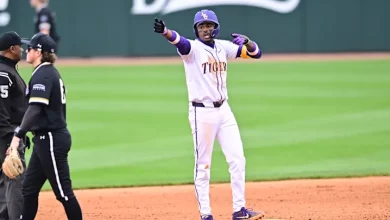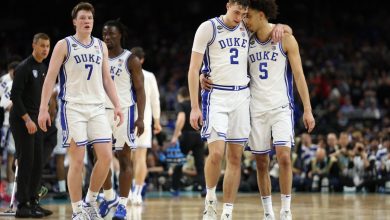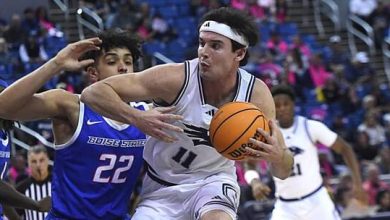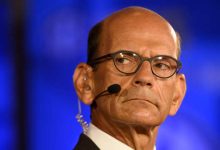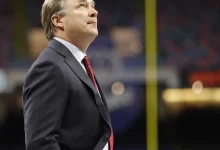Charles Barkley Makes Strong Confession About Funding NIL to Auburn
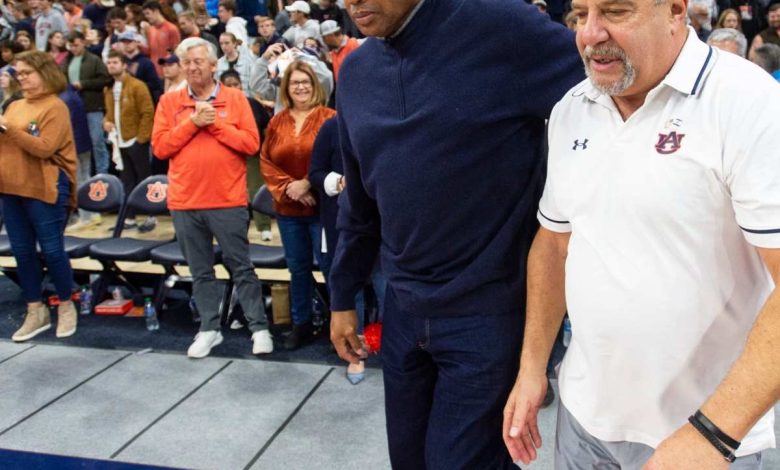
Charles Barkley Makes Strong Confession About Funding NIL to Auburn
In a candid and impactful revelation that has sent shockwaves through the college sports world, NBA Hall of Famer and Auburn University alumnus Charles Barkley publicly disclosed that he has been actively funding NIL (Name, Image, Likeness) deals for Auburn athletes. His confession, made during a recent interview, not only underscores his commitment to supporting college athletes but also ignites a broader conversation about the role of wealth, influence, and ethics in modern collegiate athletics. This bold admission has sparked debate about the future of NIL, athlete empowerment, and the responsibilities of influential figures like Barkley in shaping the landscape.
### The Context of NIL in College Sports
Since the NCAA’s landmark decision in 2021 to allow college athletes to profit from their NIL rights, the landscape of college sports has undergone dramatic change. Athletes can now monetize their fame through endorsements, social media promotions, and various commercial deals, leading to a surge of NIL agreements across the country.
While this shift has been celebrated as a victory for athlete rights and economic empowerment, it has also raised concerns regarding fairness, exploitation, and the influence of wealthy donors and boosters. Critics argue that the NIL era has begun to blur the lines between amateurism and professionalism, giving rise to an uneven playing field where wealth and influence can sway recruiting and athlete opportunities.
### Charles Barkley’s Connection to Auburn and His Philanthropic Spirit
Charles Barkley, one of the most recognizable sports figures in history, is an Auburn University alumnus and a proud supporter of his alma mater. Known for his outspoken personality and philanthropy, Barkley has long championed causes related to education, social justice, and athlete empowerment. His connection to Auburn is deeply personal: he played college basketball there in the early 1980s before embarking on a legendary NBA career.
Over the years, Barkley has used his platform to advocate for athletes’ rights and to give back to his community. His recent confession about funding NIL deals for Auburn athletes marks a new chapter in his ongoing commitment to supporting student-athletes and promoting fairness in college sports.
### Barkley’s Bold Confession: The Details
During a candid interview on a popular sports podcast, Barkley revealed that he has been personally funding NIL deals for select Auburn athletes. “I’ve always believed in giving back,” Barkley said. “These young men and women work hard, and they deserve to earn what they can from their talents and their names. I’ve been quietly helping some of our athletes get endorsement deals, sponsorships, and marketing opportunities.”
He emphasized that his funding is not about gaining influence or control but about ensuring that talented athletes, especially those from underprivileged backgrounds, have the means to succeed financially while they’re still in college. Barkley explained that he sees NIL as a way to empower athletes and provide opportunities they might not otherwise access.
“I don’t want to make it about me,” Barkley added. “But I believe in doing what’s right. If I can help these kids get some money, some exposure, and a shot at a better future, then I’m going to do it.”
### Motivations Behind Barkley’s Action
Charles Barkley’s confession is rooted in his lifelong belief in fairness, opportunity, and social responsibility. Having come from a modest background himself, Barkley understands the struggles many young athletes face, both financially and socially. His own journey from a small-town kid to NBA superstar fuels his desire to support current athletes in similar circumstances.
Moreover, Barkley’s outspoken personality often positions him as a critic of institutional inequalities. His support for NIL funding aligns with his broader advocacy for athlete empowerment and social justice. He views his contributions as a way to level the playing field and give deserving athletes a chance to capitalize on their talents.
### Broader Implications of Barkley’s Confession
Barkley’s admission has ignited widespread debate about the ethics and impact of wealthy boosters and former athletes funding NIL deals. Critics worry that such actions could lead to increased influence of wealthy individuals or entities in college sports, potentially undermining the principles of amateurism and fair competition.
However, supporters argue that Barkley’s actions exemplify positive athlete advocacy and demonstrate that retired athletes and influential figures can play a constructive role in shaping a more equitable NIL environment. His transparency also raises important questions about the role of philanthropy, mentorship, and mentorship in college athletics.
### The Impact on Auburn and College Sports
At Auburn University, Barkley’s confession has been met with pride and gratitude. The university’s athletic director and coaches have lauded Barkley’s generosity and leadership. They see his involvement as a catalyst for creating more opportunities for Auburn athletes and fostering a culture of support and fairness.
This move could inspire other alumni and influential figures to follow suit, leading to a more collaborative and athlete-centered NIL ecosystem. It also underscores the importance of responsible philanthropy in college sports, emphasizing that support should be aimed at empowering athletes rather than widening disparities.
### Ethical Considerations and Future Outlook
While Barkley’s actions are largely celebrated, they also bring to light complex ethical questions. Should NIL funding be transparent? How can universities and regulators ensure that such financial support doesn’t lead to undue influence or corruption? What safeguards are necessary to uphold the integrity of college athletics?
These questions highlight the need for clear policies and oversight to balance athlete empowerment with fairness and integrity. Barkley’s transparency sets a positive example, but the broader community must establish guidelines to prevent misuse of NIL funding.
Looking ahead, Barkley’s confession may encourage more athletes, alumni, and benefactors to get involved in supporting college athletes ethically and responsibly. It could also pave the way for innovative programs that leverage NIL funding to promote education, career development, and social causes.
### The Cultural Shift: Athletes as Entrepreneurs and Influencers
Barkley’s bold move signals a cultural shift in college sports—athletes are increasingly seen not just as players but as entrepreneurs, influencers, and brand ambassadors. His actions reinforce the idea that college athletes can leverage their fame and talent to build personal brands, create business opportunities, and secure their financial futures.
This evolution challenges traditional notions of amateurism and calls for a re-examination of NCAA policies, emphasizing athlete agency and entrepreneurship. Barkley’s involvement exemplifies how influential figures can champion this new era, advocating for fair and responsible NIL practices.
### Final Thoughts: A Legacy of Support and Progress
Charles Barkley’s candid revelation about funding NIL deals for Auburn athletes is more than a personal gesture; it’s a statement about the power of influence, philanthropy, and athlete advocacy. His actions exemplify a commitment to fairness and opportunity, inspiring a broader conversation about the responsibilities of former athletes and wealthy benefactors in shaping the future of college sports.
As the NIL landscape continues to evolve, Barkley’s example highlights the importance of transparency, ethical support, and athlete empowerment. His bold confession not only honors his roots and values but also serves as a call to action for others to step up and support the next generation of college athletes responsibly.
In a world where wealth often dictates opportunity, Barkley’s honest and generous approach reminds us all that true leadership involves giving back and paving the way for fairness, opportunity, and progress in college athletics.




